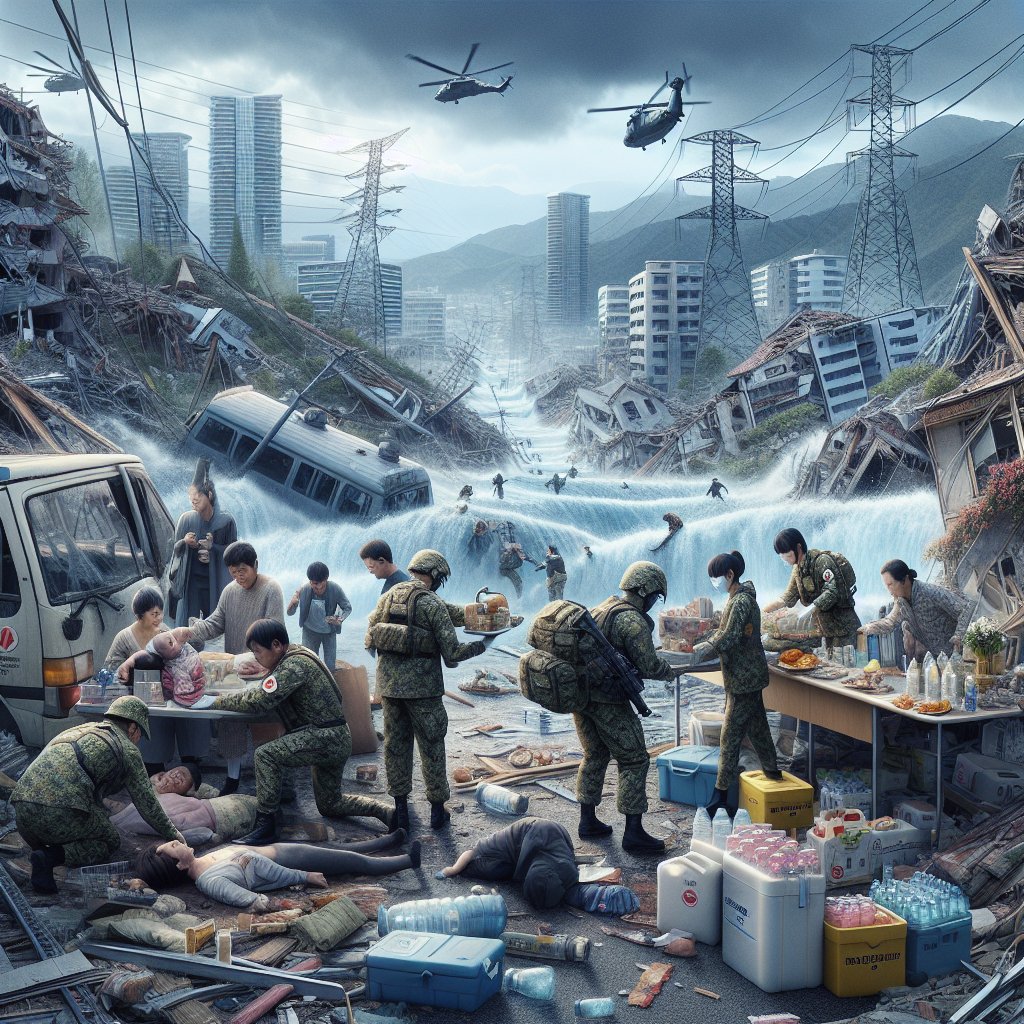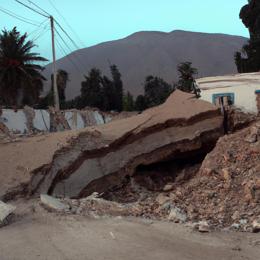Content created by AI
Japan's Devastating New Year Earthquake: Death Toll Surpasses 100
The onset of 2023 brought forth a severe test of resilience for Japan following a magnitude 7.6 earthquake that ravaged the west coast, resulting in a tragic loss of life and leaving a trail of destruction in its wake. As the death toll surpasses the harrowing figure of 100, families and emergency crews continue to sift through the aftermath in a desperate search for the more than 200 individuals still unaccounted for. This calamity marks Japan's deadliest earthquake since the 2016 Kumamoto earthquakes.
On January 1, the serenity of New Year celebrations was shattered when the Hokuriku region was struck by violent tremors. The inflicted damage was extensive, with entire infrastructures collapsing, and power blackouts affecting tens of thousands of homes. Wajima city, now scarred by the disaster, has recorded the highest number of casualties at 59, with the surrounding areas similarly affected.
In the face of unspeakable sorrow, the accounts of residents like Wajima's Hiroyuki Hamatani shed light on the human toll of such disasters. Amidst the ruins of a life once ordinary, citizens like Hamatani are enveloped by the ruins of their homes and the incapacitating uncertainty about their futures.
Japan's geolocation at the convergence of four tectonic plates significantly heightens its susceptibility to seismic activity. Despite being accustomed to frequent tremors, few have been as ravaging as the recent quake or the 2011 catastrophe, which led to a monstrous tsunami and the subsequent Fukushima nuclear disaster.
The nation, no stranger to bereavement and rebuilding, is mobilizing its resources as best it can. Thousands of self-defense soldiers are desperately supplying essentials like food, water, and medicine to over 32,000 displaced individuals taking refuge across various facilities. Despite their efforts, isolated areas are still struggling with road disruptions and supply shortages, a situation the local authorities are earnestly trying to ameliorate.
Landslides complicate the disaster scenario, with roads rendered impassable, severing critical supply routes to those in need. The struggle for power restoration paralleled with water scarcity remains another hurdle, as emergency water systems are left inefficient.
In an unexpected turn, North Korea's leader, Kim Jong Un, extended condolences to Japanese Prime Minister Fumio Kishida, underscoring the far-reaching emotional impact of the disaster, which has transcendend political boundaries and evoked a global response.
The aftermath of this tragedy will no doubt continue to unfold as Japan, with its quintessential resilience and strength, faces the immense task of healing and rebuilding.


